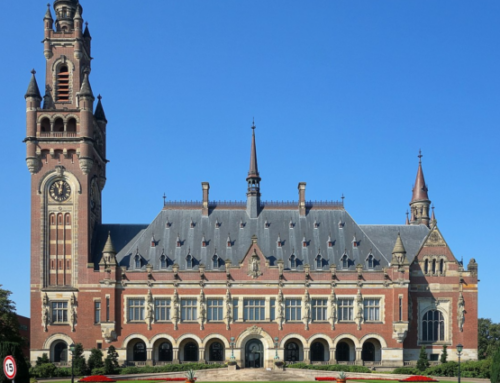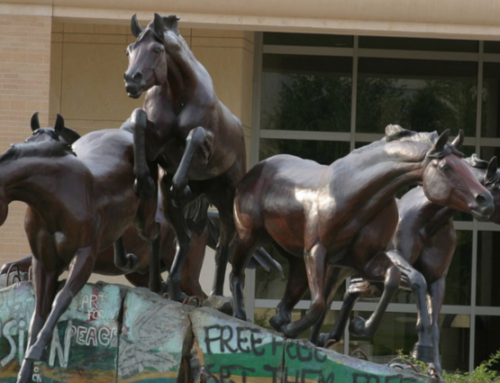Our press is complacent (fat and well-fed), our world leaders are arrogant, and accordingly our citizenry is horribly ill-informed.
Because we’ve been asked to be brief, my response to the leaks are offered in a way to get the conversation going and thus will be twofold: a general response and then some thoughts about a specific cable. I also will avoid questions of intention (on the part of Assange and Manning) and will simply have to ignore the consequentialist-versus-deonotological foundations of such a discussion. There is simply too much groundwork to be covered.
First, let me say that the diplomatic cables are not comparable to the Pentagon Papers (not even the Abyan bombing revelation that validated Amnesty International’s version of the story—that the killing of dozens of civilians, including 14 women and 21 children, were the result of U.S. bombings, and not the work of the Yemeni government as initially reported). In general, I support WikiLeaks, even if they weaken our diplomatic ties and complicate our foreign “adventures.” WikiLeaks simply reports unvarnished material—even if they do so illegally (and thus should be prosecuted according to the law). As a citizen, I feel they have done me a personal service (offering me unvarnished information about the workings of my government), and no doubt a disservice as well (perhaps weakening that same government in areas in which it legitimately harms us to be weakened).
Our press is complacent (fat and well-fed), our world leaders arrogant, our citizenry horribly ill-informed/dis-informed/mis-informed. Everything becomes filtered for us in some way shape or form for the good of country, for the safety of soldiers, for the good of our citizenry (usually to keep us “safe”), and/or to safeguard the collapse of the economy. And I don’t deny that some or all of the above may be true in some respect. As a citizen, I tire of being told that I need not know what our officials are up to in foreign lands (or even in our own land—I hope for and would relish a thorough WikiLeaks-type release of the lobbying that goes on in DC; I think it would make us really rethink what we mean by “representative” government, perhaps far more so than the cables dealing with foreign affairs and the killing of foreign persons).
There are a couple of issues that need to be addressed, I think, regarding the safety of our diplomats, soldiers, and officials overseas.
1) WikiLeaks has been publishing for four years (did anyone else read their stuff on Kenya? Chilling.). In those four years, I don’t think there has been one instance, not a substantiated, non-hypothetical allegation (not even by the Pentagon) that any person has come to any harm because of these leaks. Embarrassment abounds and brutality has been exposed, but we have yet to see a substantiated charge of reckless endangerment.
2) Through his Lawyer, Assange contacted the Obama administration and asked them to “privately nominate any specific instances (record numbers or names) where it considers the publication of information would put individual persons at significant risk of harm that has not already been addressed” (NYTimes). Harold Koh of the State Department refused. I guess it wasn’t that important to protect them.
I’ve already gone over the limit with these general comments, so I will close with what I found to be an interesting cable:
Abu-Ghraib photos leak. These were shocking and made me sad and angry. I hated seeing and reading about what was being done by my country and essentially with my tax dollars (the stories of family members being used for interrogation purposes literally made me vomit). We were told by the administration that release of the photos would mean recruits for various terrorist groups. Many thought that this was a trumped up “scare tactic” (“the war on terror” in yet another key) used by the administration to avoid embarrassment (if not charges of international crimes). Know what? The administration was right. From a cable: “MbN responded ‘You bet!’ it would be bad for security, and noted that following publication of the first Abu Ghraib photos, Saudi authorities had arrested 250 individuals trying to leave Saudi Arabia to join extremist groups in Afghanistan. Release of more pictures would give AQ ‘the favor of their life,’ said the Prince. Saudi Arabia had fought very hard to defeat AQ on the Internet, but he couldn’t see how to fight 2000 new photos.’” Perhaps the most ironic thing about many of the leaked cables is that they show that the various administrations’ diplomats were actually correct in their various assessments and that they are extremely skillful in what they do diplomatically.
Books on the topic of this essay may be found in The Imaginative Conservative Bookstore. The Imaginative Conservative applies the principle of appreciation to the discussion of culture and politics—we approach dialogue with magnanimity rather than with mere civility. Will you help us remain a refreshing oasis in the increasingly contentious arena of modern discourse? Please consider donating now.








Nice post. I dislike the anarcho-libertarianism of the WikiLeaks people, but "secrets" don't need to be on data bases accessible to Army privates.
Does anyone remember how the Soviets sent pretty girls to seduce the Marine guards at our embassies? WikiLeaks is the unsexy way to do the same thing.
I likewise have very mixed feelings behind the behavior of the WL crowd, but God has this wonderful little habit of using the wicked powers against each other. This is no different.